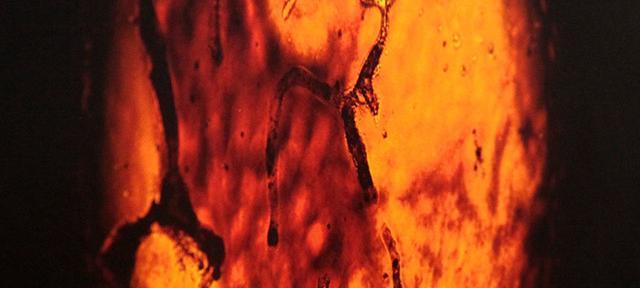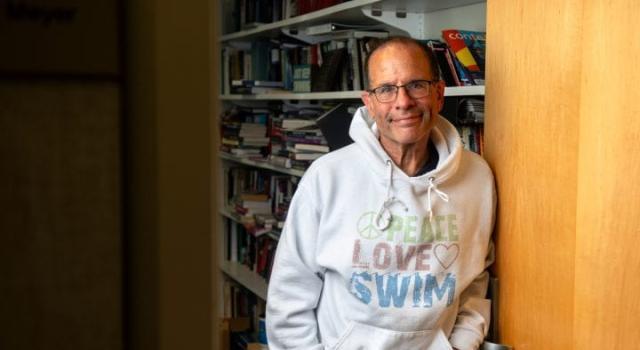Five Hampshire College Science Students Receive Coppinger Grants

Fall 2014 Ray and Lorna Coppinger Endowment Grants have been awarded to five Hampshire College students to support research projects in the cognitive and biological sciences.
Fall 2014 Ray and Lorna Coppinger Endowment Grants have been awarded to five Hampshire College students — Josia Gertz DeChiaria, Matt Hecking, Ben Liebman, Aaron Lindeke-Myers, and Tim Stiles — to support research projects in the cognitive and biological sciences.
Professor Emeritus Ray Coppinger was a founding member of the Hampshire faculty and a leader in establishing the College’s emphasis on student inquiry and research. The Ray and Lorna Coppinger Endowment Grants are competitive, based on the intellectual merit of proposed work, and judged by the deans of cognitive science and natural science.
The funded projects are:
Josia Gertz DeChiara, Division II, “Who Likes the Hotter Planet? Genomic Sequencing and Analysis of Eukaryotes in Warmed Soil.” Investigation of the relationships between soil temperature and soil microbe activity and survival, designed to help shed light on the mechanisms of climate change. Research supervised by botany professor Lawrence Winship, with lab work with Jeffrey Blanchard, co-director of the Center for Microbiome Research at the University of Massachusetts.
Matt Hecking, Division II, “A Local Study of Molecular Adaptation for Cold-Select A. tsugae Populations.” Hecking’s study will seek answers to some of the questions surrounding the northern advancement of the invasive hemlock wooly adelgid, which threatens New England’s hemlock populations. Research supervised by biology professor John Castorino.
Benjamin Liebman, Division II and preparation for Division III, “The functional significance of CD147 interactions in relation to MMP activity.” Liebman will examine neurotoxic activity of enzymes that potentially play a role in causing Alzheimer’s Disease. Research supervised by Professor Castorino.
Aaron Lindeke-Myers, Division II, “Investigation of the Initiation and Propagation of Alzheimer’s Disease Cytopathologies.” Also researching the development of Alzheimer’s, Lindeke-Myers will investigate the causes of plaque formation, including what injuries cause AD cytopathologies (oxidative stress, physical trauma, and/or nutrient deprivation). Research supervised by Professor Castorino.
Tim Stiles, Division II, “Computational Modeling and Analysis of the Vasculature.” Stiles is interning with a group conducting on-site research in the Computational Biology Lab of the Center for Vascular Biology Research at the Beth Israel Deaconess Medical Center and Harvard Medical School. Stiles’ faculty supervisor is computer science professor Lee Spector. The project includes an internship with Dr. Kyle Harrington 03F, a post-doctoral researcher at Harvard Medical School, and Dr. Katie Bentley, a computational biology professor at Harvard Medical School.



